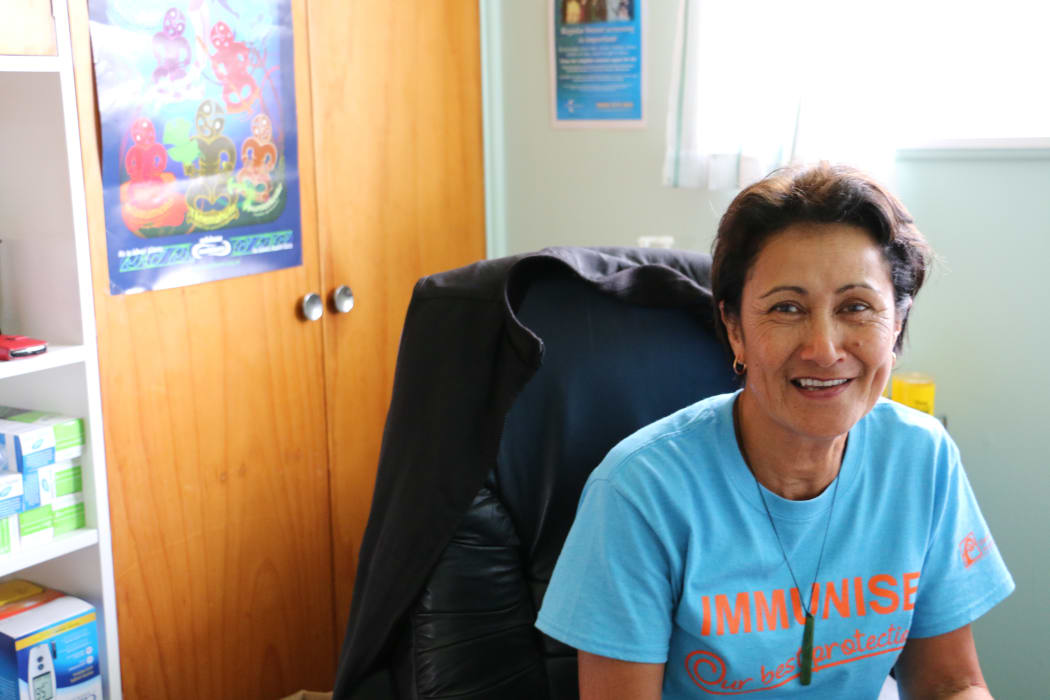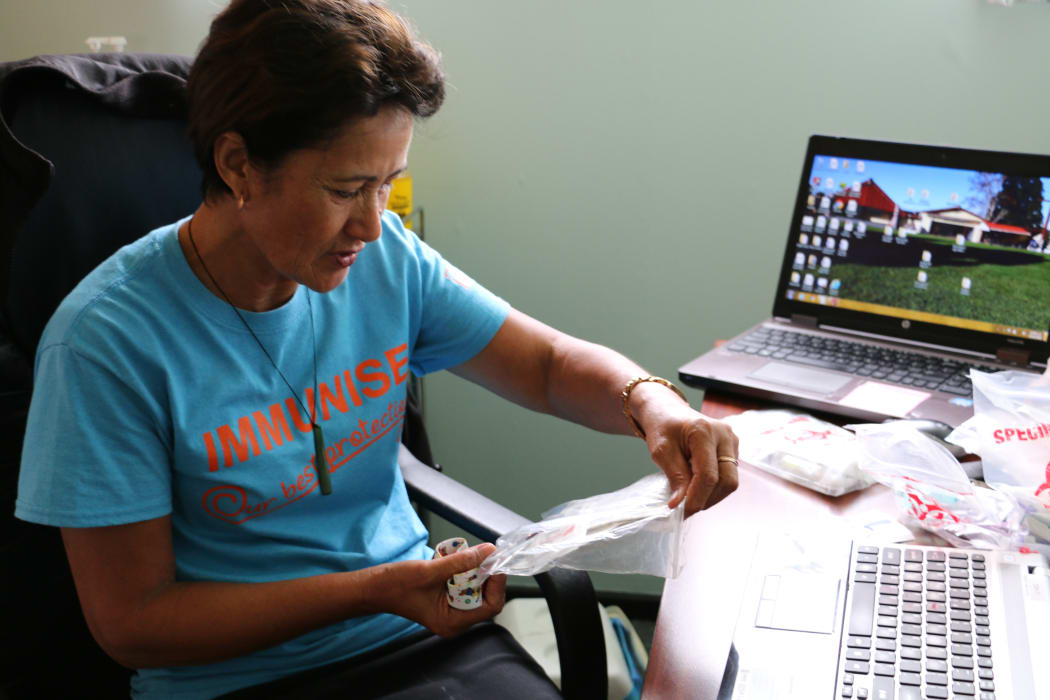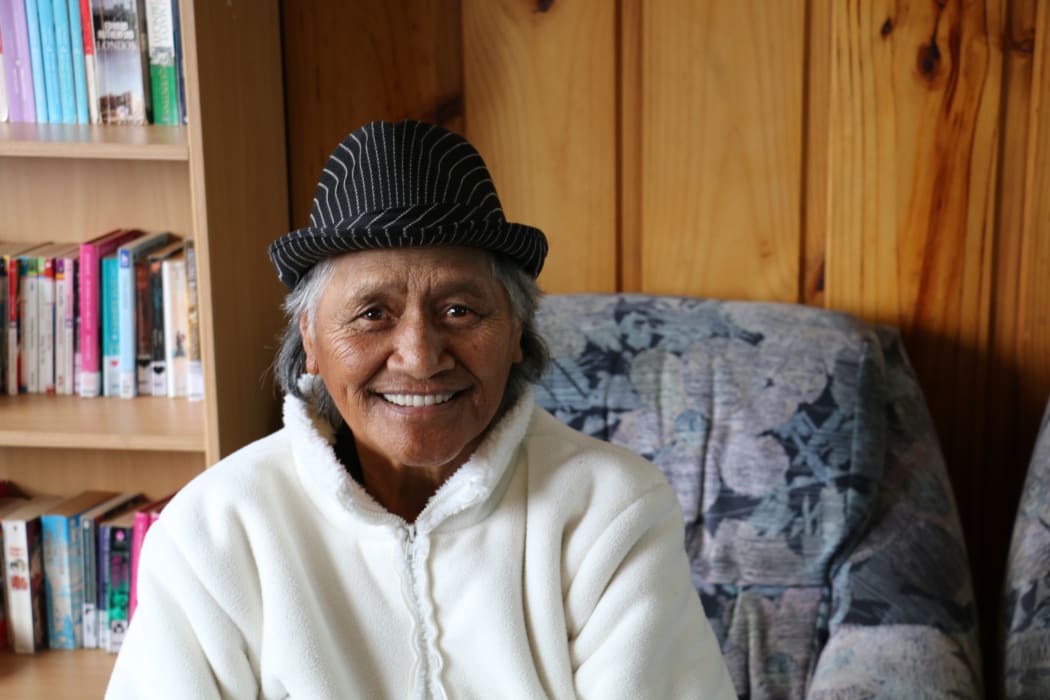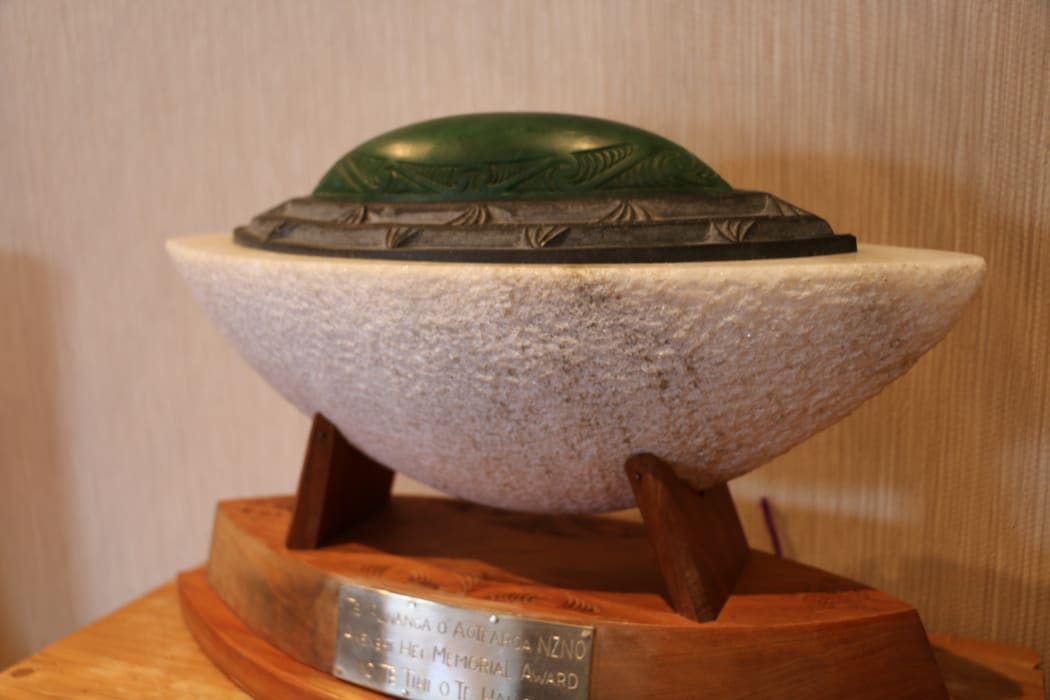
Pare O Brien runs mobile clinics in Te Teko, Matata and Edgecumbe Photo: RNZ/Justine Murray
This year Pare O'Brien received the New Zealand Nurses Organisation's highest accolade for services to her Eastern Bay of Plenty community. Pare's mother Putiputi O'Brien, who she describes as "a legend", also received the Te Akenehi Hei Award in 2002.
Te Ahi Kaa spends the morning with Pare at Te Teko Medical Centre.
Putiputi O'Brien, QSO (1922-2015) worked as a public health nurse in the Eastern Bay of Plenty for 50 years. Upon her retirement she was in demand both locally and overseas, discussing health issues including Sudden Infant Death Syndrome (SIDS). She founded Tipu Ora Charitable Trust in 1991 and was Patroness of the Te Kaunihera o Nga Neehi Māori (The Council of Māori Nurses). In 1987 she was awarded the Queens Service Order.
"Mum must have delivered babies from every whanau between here, Ruātoki and Kawerau. She said to me, and I will never forget it, 'Nursing is not a vocation – it’s a passion” - Pare O'Brien

Pare o Brien is from Te Teko and moved home after ten years of Night Shift work at a Public Hospital. Photo: RNZ/Justine Murray
On a Tuesday morning at Te Teko Medical Centre, fruit is laid out on a table for patients to help themselves to, a few people are catching up on local news in the waiting area, and Pare is busy in her office with her scheduled appointments. She runs mobile clinics in Te Teko, Matata and Edgecumbe and makes homes visits with the local Kaumatua who are mostly housebound.
It's a full-on career, and Pare jokes that the only time she truly gets away from work is when she's out on a lake somewhere, fishing with her husband.
The clinic runs from 9.30am to lunchtime. Pare says she doesn't advertise her service, it's more word of mouth.
Meanwhile, one of the local kuia, Te Whaiora, sits in the waiting room. She knew Pare's mother well and says that her work today is highly regarded especially to the many kaumatua.

Te Whaiora says Pare's role is very important to the community of Te Teko. Photo: RNZ/Justine Murray
Pare’s office is located at Te Tohu o te Ora o Ngāti Awa in Whakatane (Ngāti Awa Social and Health Services). Each morning the staff there begin their day with karakia and waiata.
Heremaia Harawira, who is part of the Community Action Youth and Drugs programme (CAYAD) programme, joins the conversation to explain the philosophy of their work and the history of the area.
Pare says she reluctantly accepted her Te Akenehi Hei Award on behalf of her whanau and her mother’s legacy. The tāonga sits in the main foyer at Ngati Awa Social and Health Services.

Akenehi Hei Memorial Awards was named after Akenehi Hei, born in 1877 and became one of the first Māori registered nurses. She died of typhoid in 1910. Photo: RNZ/Justine Murray

